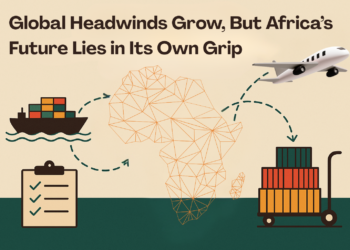In Ethiopia, informal enterprises are a vital part of the economy, operating outside formal regulations and characterized by their small scale and lack of legal recognition. These businesses encompass a wide array of activities, including street vending, small-scale manufacturing, and services across various sectors like retail, recreation, hospitality, construction, transportation, manufacturing, and agriculture. They are often established out of necessity, providing livelihoods for individuals unable to find formal employment or supplementing incomes. These enterprises demonstrate remarkable flexibility, adapting to diverse markets and locations with low entry barriers.
The informal sector constitutes a significant portion of Ethiopia’s economy, with estimates suggesting it represents 33.5% of the GDP, or $149 billion, based on 2018 figures. This sector is even more prominent in many other African countries, where it accounts for approximately 83% of total employment across the continent and 85% in Sub-Saharan Africa. This underscores the critical role these enterprises play in fostering local economic development and inclusive growth, particularly benefiting young people and women.
Despite their crucial role, informal enterprises in Ethiopia encounter numerous obstacles. One of the most significant challenges is limited access to finance, as they often struggle to secure loans due to a lack of collateral and the perception of high risk. Additionally, many owners lack access to business skills training and resources, hindering their capacity to manage and expand their businesses. Their legal status also means they receive minimal government support, while restricted market information and networks limit their access to new opportunities.
Furthermore, inadequate infrastructure, including poor working premises and unsanitary conditions, especially in open markets, compounds their challenges. Many informal business owners also have limited knowledge of financial services and available resources, and they often face discriminatory lending practices from financial institutions due to the size, operations, or ownership structure of their businesses.
Access to finance is crucial for informal enterprises as it facilitates their ability to start, grow, manage finances, and protect against economic shocks. However, only a small fraction of these businesses (4%) have successfully accessed credit. Traditional financial institutions are often located in urban areas, making them inaccessible to many informal businesses, and many business owners lack the necessary documentation to open a bank account.
To address these issues, innovative solutions have been implemented in Ethiopia, such as microfinance institutions (MFIs) that offer loans and other financial services tailored to low-income individuals and enterprises. Group lending, where borrowers apply for a loan collectively, has also been utilized, though its success has been mixed due to challenges such as poor financial literacy and management skills. Digital lending is also emerging as an option, with some banks and telecommunication companies providing loans through mobile platforms.
However, these loans often come with high interest rates and short repayment periods that are not ideal for informal businesses. Traditional saving groups, like Equb, also play a vital role, providing access to finance without requiring a credit history. Saving and Credit Cooperative Organizations (SACCOs) also provide more flexible, lower-interest loans than traditional banks. Despite these efforts, many informal businesses remain unbanked due to a lack of sufficient income to save and difficulties in securing loans because they lack collateral and business licenses. A lack of collateral is a major barrier for both those rejected for loans and those who have not attempted to secure one.
A 2023 study in Ethiopia revealed that most informal business owners have completed education up to the eighth grade, demonstrating literacy and business management capabilities. The study also found that most businesses were established within the past four years. While most provide self-employment, some businesses create jobs for others, particularly for women.
This highlights the significance of informal businesses as sources of income and opportunity, especially for women, who often face more barriers. Although 68% of informal business owners plan to obtain a license, many face challenges due to a lack of capital and suitable working premises. Many businesses, while desiring to be formal, are also looking to avoid taxes and bureaucracy.
Most of these businesses are profitable, earning more than they spend, with profits typically used for family necessities. While 94% of businesses surveyed use banks or MFIs, they primarily utilize savings accounts, with very few accessing loans. Financial institutions often do not reach out to informal enterprises, with 63% of those surveyed reporting that they had not acquired any information from banks or MFIs about potential services.
The assessment of informal enterprises’ access to finance indicated a high demand for financial support, which is not being adequately met by existing financial products and institutions. The study concluded that financial support, such as grants, is vital to help businesses grow and build resilience, but that very few receive such support. Support for accessing finance, coupled with information and awareness, is crucial for these enterprises to navigate the financial landscape effectively and achieve sustainable growth.
Various programs have been implemented to support informal enterprises, including the Micro and Small Enterprises (MSE) Resilience Facility, which provided grants and soft loans to 2,000 businesses impacted by COVID-19. The Micro, Small and Medium Enterprise Recovery and Resilience (MESMER) Program provides recovery grants, psychosocial support, and business development services, primarily to women-owned enterprises. The International Labour Organization (ILO) also has projects focused on improving working conditions, productivity, and access to finance for informal workers. The Entrepreneurship Development Project for the Urban Informal Sector (EDP-UIS), implemented by the Ethiopian Ministry of Urban Development and Construction, offers training, credit, business services, and infrastructure improvements.
The BRIDGES Program, an assessment on why informal enterprises stay informal, found that many businesses recognize the benefits of formalization but are deterred by the costs. These programs illustrate that with appropriate support and resources, informal enterprises can expand and contribute to Ethiopia’s economic development.
Informal enterprises are more inclusive, serving lower-income populations and reaching remote communities across Ethiopia. They include women, youth, people with disabilities, and internally displaced people. These businesses are usually self-employed or family-owned and are a critical source of revenue for them and their families. As digitalization increases in Ethiopia, these enterprises are beginning to use mobile payment platforms, such as Telebirr, indicating that digital products are becoming more accessible.
The future of informal enterprises in Ethiopia depends on stakeholders’ collaboration to address their specific needs. Financial institutions must create and promote tailored products, and the government must implement policies that encourage a transition from informal to formal. By supporting the growth and integration of these enterprises, Ethiopia can unlock the full potential of its informal sector, ensuring economic opportunities and inclusive development for all.
Read the whole report here: Opportunities and Gaps in Access to Finance; the Case of Informal Enterprises in Ethiopia copy





















